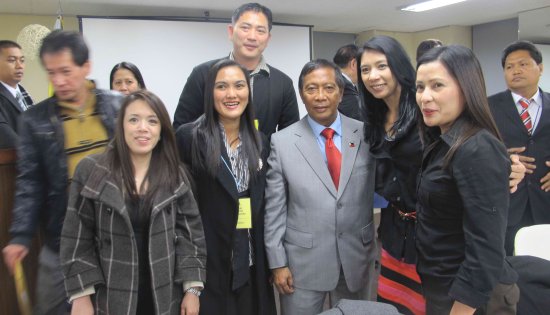Filipinos in Sokor
rally behind Filipina bet for parliament

By OVP Media
March
31, 2012
MANILA – The
Filipino community in South Korea is rallying behind the candidacy of
Jasmine Lee, a Filipina married to a Korean national who is running
for Parliament under the ruling party, and Vice-President Jejomar C.
Binay said her strong showing “gives hope not only for Filipinos but
for all migrants and immigrants.”
“We are all very proud
that a full-blooded Filipino is being given the opportunity to be a
member of the Korean Parliament,” Binay told South Korean media. “It
shows that Korea is prepared to extend the opportunity to become a
public servant even to those who were not born here.”
Binay said if elected,
Lee “will be an advocate not only of Filipino workers’ rights, but the
rights of all migrants in
South Korea.”
Lee is a popular TV
host, and heads the Global Resource Center (GRC) in Seoul, a
non-government organization serving as a support group for foreign
wives of Koreans.
She became a
naturalized Korean in 1998, three years after she married Korean Lee
Dongho and moved to South Korea.
The ruling Saenuri
Party included her in the list of 46 candidates for the proportional
representative seats in the April 11 elections in South Korea.
Lee, who was present
during the Vice-President’s dialog with the Filipino community at the
Philippine Embassy, wrote down the concerns raised by the OFWs, among
them the plight of “Stateless children,” or children born to migrant
parents who are not recognized by the host countries.
“What we can do is to
appeal to the host governments to recognize these children. But the
problem is not only confined to
South Korea
but in other countries, especially in the Middle East where there are
an estimate 6,000 of them,” Binay said.